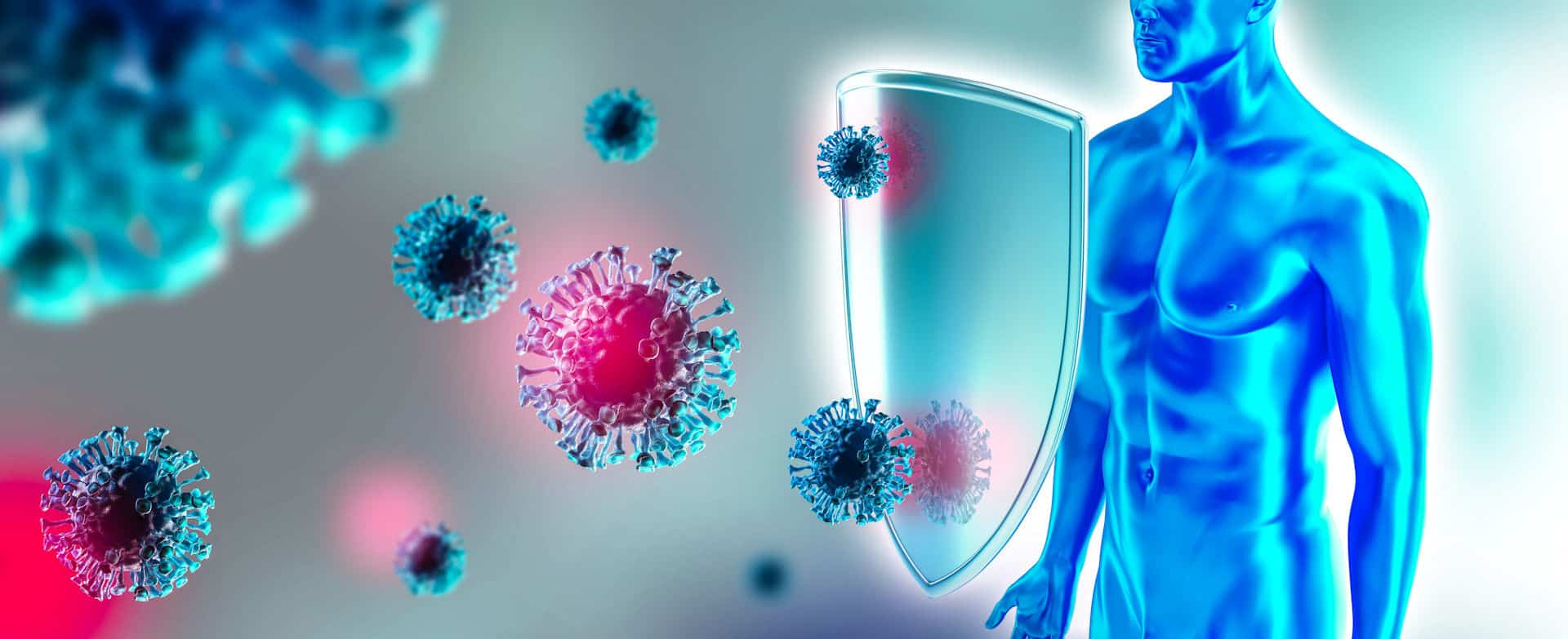
There is a relationship between drinking alcohol and your immune system, which is why it’s crucial to know the ins and outs to try and avoid or treat chronic health problems early enough before it’s too late.
Luckily, Eagle Creek Ranch Recovery’s addiction rehab in Nampa, Idaho, offers substance abuse treatment programs, therapy services, and other resources to help people recover and maintain sobriety.
Alcohol Withdrawal, Chills, the Flu, What is It?
When you’re feeling under the weather, it can be difficult to tell what’s going on with your body. Are you sick, or has alcohol begun to harm your body? These are difficult questions to answer. However, this does not rule out the possibility. Though some symptoms overlap, it is usually clear when someone is suffering from alcohol withdrawal.
What are the Symptoms of Alcohol Withdrawal?
Alcohol withdrawal is a condition that occurs when a person abruptly stops drinking after consuming alcohol for an extended period of time. Alcohol withdrawal symptoms include the following:
- Anxiety
- Insomnia
- Tremors
- Sweating
- Nausea
- Vomiting
- accelerated heart rate
- Blood pressure has risen
- Confusion
- Hallucinations
- Seizures
If you’ve been drinking heavily for a long time, it’s critical to recognize the signs of alcohol withdrawal and seek medical attention as soon as possible. If left untreated, alcohol withdrawal can be dangerous and even fatal.
Hangover vs Alcohol Withdrawal or General Sickness?
Alcohol withdrawal symptoms can be similar to common ailments, such as nausea, fatigue, tremors, and irritability. It is important to note, however, that these symptoms are typically more severe in alcohol withdrawal than in regular sickness. Increased anxiety and depression, difficulty sleeping or insomnia, confusion or disorientation, changes in appetite, increased heart rate and blood pressure, sweating, palpitations, headaches, and seizures are all signs of alcohol withdrawal.
Alcohol and the Immune System: What’s the Relationship?
Alcohol can have a significant impact on the immune system. When consumed in large quantities, alcohol can impair the body’s ability to fight infections and diseases. Drinking can impair immune function, increasing the risk of contracting illnesses or having serious complications from pre-existing illnesses. Heavy drinking also decreases the production of certain immune cells, making the body more susceptible to infection.
Excessive drinking can also lead to inflammation, which occurs when the body’s immune system reacts to foreign substances such as bacteria or viruses. This reaction can cause several health problems, including an increased risk of heart disease and stroke. Chronic inflammation can even impair the body’s ability to heal itself.
Finally, excessive alcohol consumption can harm organs such as the liver and kidneys, reducing their ability to filter toxins from the bloodstream. This can result in a variety of behavioral health problems, including kidney failure and neurological damage. To avoid these serious health risks, it is critical to limit your alcohol consumption.
Chronic inflammation is a major health concern that can be exacerbated by alcohol consumption. Alcohol consumption upsets the body’s natural hormonal and chemical balance, which can lead to chronic inflammation.
This type of inflammation is particularly difficult to treat because its effects on the body are long-lasting. It increases stress levels and increases the risk of heart disease, as well as, certain types of cancer. Other health problems associated with alcohol use include liver damage and impaired mental functioning.
Alcohol consumption has been shown to harm overall health and can increase the risk of infection. Alcohol can depress the immune system, making it more difficult to fight viruses and bacteria. Furthermore, alcohol can influence other lifestyle factors that increase a person’s risk of infection, such as poor nutrition, lack of sleep, and smoking.
Heavy drinkers are also more likely to engage in risky behaviors that increase their chances of contracting an infection. Individuals must be aware of the link between alcohol consumption and increased infection risk and take precautions to protect their health.
Alcoholism is a common disorder that can harm a person’s sleep health. Chronic alcohol abuse has been linked to disrupted sleeping patterns, difficulty falling asleep, and even insomnia.
Furthermore, heavy drinking can result in restless leg syndrome and obstructive sleep apnea. It disrupts the body’s natural circadian rhythms (the biological clock) and can cause brain changes that affect how the brain processes various sleep-related hormones. Chronic drinkers, in particular, have lower levels of melatonin, a hormone responsible for regulating sleep cycles, according to studies. This causes additional changes in sleeping patterns and may cause people to wake up during the night.
Is Alcohol Addiction a Risk Factor for Contracting COVID-19?
Alcoholism is a serious problem that can hurt a person’s overall health. Alcohol consumption has been linked to an increased risk of developing various physical and mental health conditions, so even during the COVID-19 pandemic, it is important to be aware of the potential risks associated with alcohol abuse.
According to research, excessive alcohol consumption can weaken the body’s immune system, making it more susceptible to disease. Because alcohol reduces the ability of white blood cells to fight infection, drinkers are more susceptible to illness. Furthermore, chronic heavy drinking can cause inflammation in the lungs and other organs, increasing the risk of serious COVID-19 complications.
How Addiction Treatment Can Help a Person Overcome Alcoholism?

Alcoholism can be a difficult battle to overcome, but there are rehabilitation programs available that can provide the support and treatment needed to help people struggling with alcoholism find long-term recovery. Rehab facilities provide comprehensive treatments to assist individuals in working through the physical and psychological aspects of their addiction. Depending on the severity of an individual’s alcoholism, they could spend a few weeks to several months in rehab.
Individuals in rehabilitation are typically surrounded by a caring and supportive environment designed to promote recovery, providing the ideal environment for healing and growth. Individual counseling is used in most alcohol rehab programs to help people identify their triggers and develop strategies for dealing with cravings, as well as group therapy to provide support and build relationships.
How Do I Stay Sober While in Recovery?
It can be difficult to deal with being sick when you are recovering. During recovery, your body requires time to repair and heal; if you are infected with an illness or virus, it may be difficult for your body to focus on healing while fighting the illness.
Furthermore, many recovery medications can interact negatively with sickness medications, making it difficult to manage both at the same time. Furthermore, being sick can be emotionally and physically draining, resulting in fatigue and difficulty focusing on recovery goals.
If you feel sick during your recovery period, it is critical to take extra precautions such as getting plenty of rest and nourishment, avoiding contact with other people as much as possible, and communicating any symptoms or changes in your health with your healthcare provider. Your long-term health and well-being must take the necessary precautions to ensure a successful recovery.
The Benefits of Sobriety
Alcoholism can be a difficult battle to overcome, but there are rehabilitation programs available to help people struggling with alcoholism find long-term recovery. Rehab centers offer comprehensive treatments to help people work through the physical and psychological aspects of their addiction. Depending on the severity of an individual’s alcoholism, they could be in rehab for a few weeks to several months.
Individuals in rehabilitation are usually surrounded by a caring and supportive environment that is designed to promote recovery, making it the ideal environment for healing and growth. Most alcohol rehab programs use individual counseling to help people identify their triggers and develop strategies for dealing with cravings, as well as group therapy to provide support and build relationships.
Start Your Recovery Journey Today at Eagle Creek Ranch Recovery
Alcoholism is a difficult road to travel. This is why it is critical to seek professional assistance. At Eagle Creek in Nampa, ID, we strive to treat each individual as an individual. If you or a loved one would like to learn more, please contact us today. You’re not alone in your journey!

Clinical Director
Kendall Maloof is the clinical director at Eagle Creek Ranch Recovery. She is a licensed marriage and family therapist and has held multiple leadership roles before settling here at Eagle Creek. Kendall received her master’s degree in marriage and family therapy from the Chicago School of Professional Psychology in 2016. Her career in mental and behavioral health began in 2014 when she took up internships in both the nonprofit and for profit sectors. She interned at multiple reputable companies, such as The Living Success Center and 449 Recovery in California.
In 2019, Kendall became the clinical director of Sunsets Recovery for Woman, a dual diagnosis program in southern California. Kendall is a natural leader. She has an incredible ability to problem solve and stay calm in any situation. Kendall never fails to show up when she is needed, and her calm demeanor makes her team and clients feel at ease. Eagle Creek Ranch Recovery is proud to have Kendall as our clinical director.



